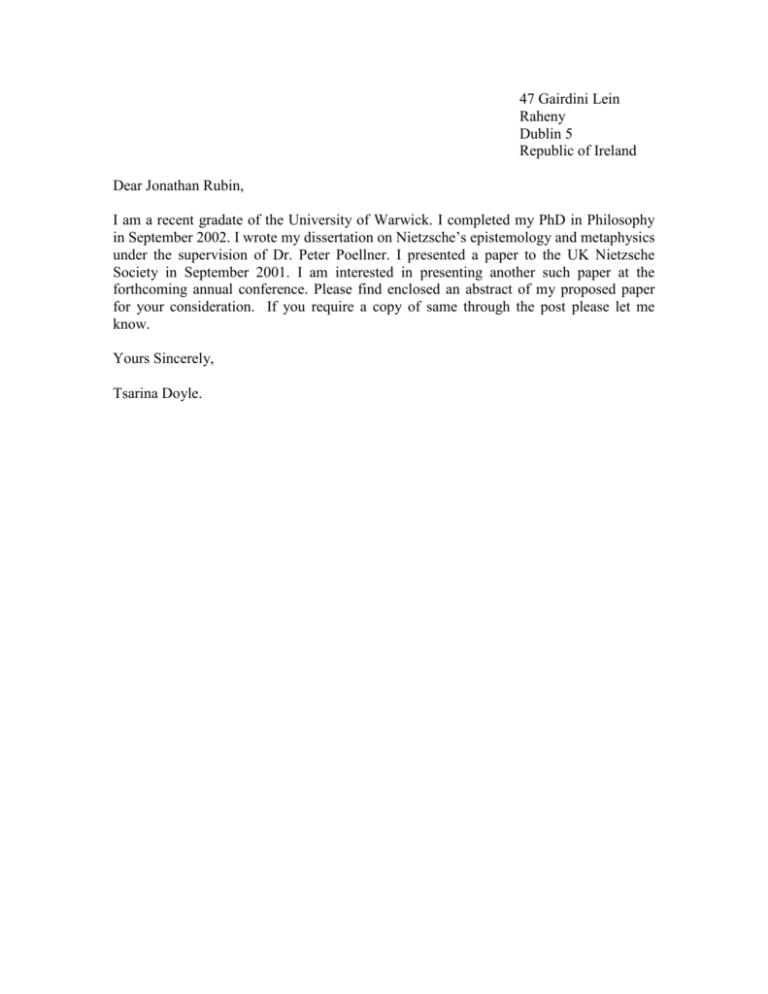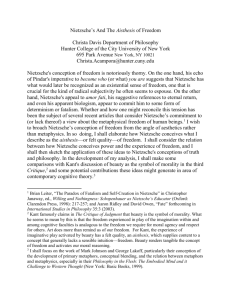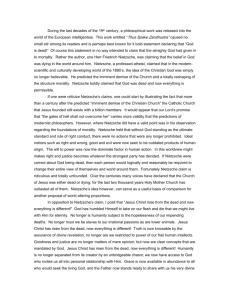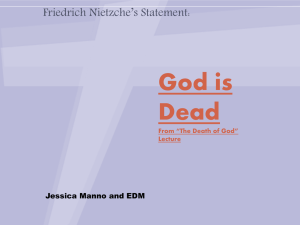Nietzsche and the reciprocity of Art and Science
advertisement

47 Gairdini Lein Raheny Dublin 5 Republic of Ireland Dear Jonathan Rubin, I am a recent gradate of the University of Warwick. I completed my PhD in Philosophy in September 2002. I wrote my dissertation on Nietzsche’s epistemology and metaphysics under the supervision of Dr. Peter Poellner. I presented a paper to the UK Nietzsche Society in September 2001. I am interested in presenting another such paper at the forthcoming annual conference. Please find enclosed an abstract of my proposed paper for your consideration. If you require a copy of same through the post please let me know. Yours Sincerely, Tsarina Doyle. Nietzsche and the reciprocity of Art and Science It is sometimes argued that Nietzsche adopts an “aesthetic” approach to the question of knowledge. This view suggests that Nietzsche is not ultimately concerned with the epistemic value of our beliefs and that he is more concerned with the life-enhancing power of those beliefs. Thus, there is, in the secondary literature, a predominantly anticognitive understanding of Nietzsche’s interest in aesthetics. Supporters of this anticognitive reading look to The Birth of Tragedy for support where Nietzsche defines his aim as “to look at science through the prism of the artist, but also to look at art through the prism of life.” (BT, 2). It is suggested on the basis of citations such as this one that Nietzsche grants priority to art over science. Nietzsche, it is claimed, rejects science in favour of art because science embodies the ascetic ideal and the view that we can obtain disinterested objective knowledge. Thus, it is suggested that Nietzsche is more interested in value than knowledge. This reading trades on a fundamental opposition between the role of science and the role of art in Nietzsche’s writings. In this paper, I will suggest that the anti-cognitive reading is complicated somewhat by Nietzsche’s claim that “Aesthetics makes sense only as natural science: like the Apollinian and Dionysian.” (KSA, 7 16 [6]. In view of this statement and other similar ones drawn from Nietzsche’s early and late writings alike, I propose to show that art and science are, for Nietzsche, reciprocal disciplines. I will argue that the relationship between art and science is, for Nietzsche, one between imaginative conjecture ad rigorous methodological constraint in research. In so doing, the overall aim of the paper will be to argue that Nietzsche adopts a regulative approach to knowledge that facilitates the making of objective claims about the nature of reality. I aim to show that when art and science work in tandem they yield interested but objective knowledge. By this I mean that although our knowledge is, in Nietzsche’s view, anthropocentric we are still capable of judging that some epistemic claims are more adequate than others. It is in this vein that I will argue that the relationship between art and science is ultimately, in Nietzsche’s view, to be understood as the reciprocity of norms and facts. Tsarina Doyle









